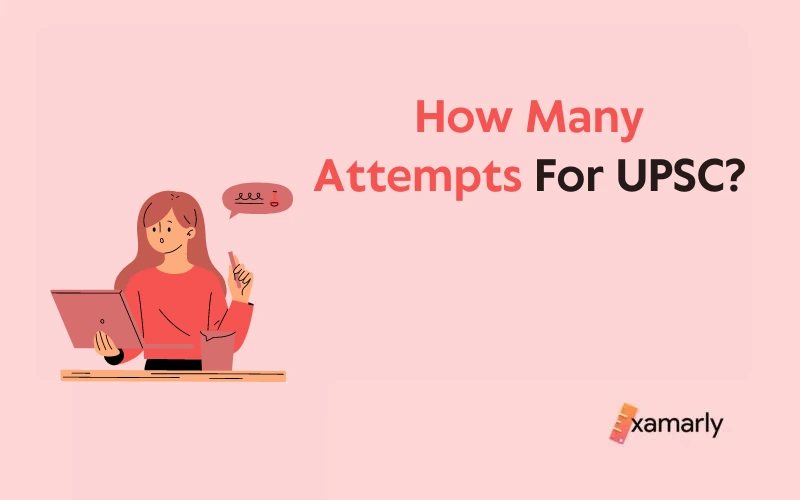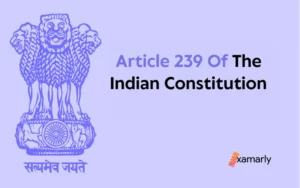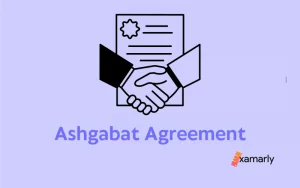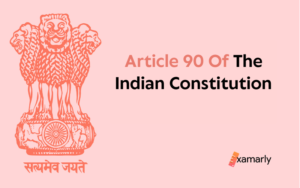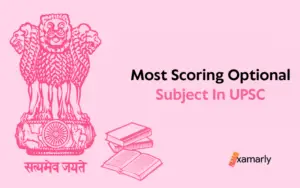The IAS Exam is a gateway to a successful career in the Indian Civil Services. It is an exam that requires not only rigorous preparation but also careful consideration of how many attempts for UPSC is allowed.
The Union Public Service Commission (UPSC), which conducts the IAS Exam, has outlined the UPSC attempt limits for various categories of candidates. For the general category, the number of attempts was initially limited to four. But as of today, it is six up to the age of 32.
Knowing the number of attempts allowed is a crucial aspect of preparing for the IAS Exam, as it helps the aspirants plan and strategizes their journey toward success.
In this article, we will take a closer look at the UPSC attempt limits and how they affect the preparation and success of IAS aspirants.
- What is the Age Limit for IAS Exam?
- How Many Attempts for UPSC?
- Who is qualified to receive an EWS relaxation from the UPSC?
- Should the submission of the EWS Certificate be required?
- How are the UPSC Attempts Estimated?
- Minimum Educational Requirements for the UPSC CSE
- Strategies for Making the Most of Each Attempt
- Conclusion
- FAQs About UPSC Attempts
- At what age can I apply for the civil services preliminary exam?
- Are there some relaxations for economically weaker sections' aspirants?
- If I apply for UPSC civil services exam and don't attempt the exam, will it count as an attempt?
- Do I need to pursue any special degree course before attempting the UPSC civil services exam?
- How many times may SC/ST aspirants attempt the UPSC?
What is the Age Limit for IAS Exam?
Category-wise age limits for various categories are detailed below:
- At the minimum, 21 years is the age to appear in UPSC CSE. That means the candidate should at least be 21 years old (by August 1 of the year in which he/she is going to attempt CSE)
- For General category candidates: Upper Age Limit is 32 years
- For Other Backward Classes (OBC): Upper Age Limit is 35
- For Scheduled Classes (SC): Upper Age Limit is 37
- For Scheduled Tribes (ST): Upper Age Limit is 37
- For people who are blind, deaf-mute, or have orthopedic disabilities: The maximum age is 42.
Note: In addition to the aforementioned maximum age limits, OBC/SC/ST candidates will also receive a cumulative age relaxation. This implies age relaxations will be added in certain exceptional cases.
For example, An extension of 8 years (3+5) will be granted if the person is OBC + Ex-serviceman; his maximum age limit will be 40 years.
How Many Attempts for UPSC?
As mentioned above, the upper age limits for various categories are different but that doesn’t imply that he/she can give the exam n-number of times.
Consider a candidate of the General category, meaning his/her upper age limit is 32. It doesn’t mean he/she can attempt the IAS Exam unlimited times before their maximum age. There are limits placed on the number of times an individual is allowed to take the examination, and these limits are based on the applicant’s particular category.
- For the General Category: You get six chances till you are 32 years old
- For OBC: 9 attempts till 35 years of age
- For SC/ST: unlimited attempts till 37 years of age
- Physically disabled/handicapped candidates of the General category: 9 attempts till 42 years of age.
Who is qualified to receive an EWS relaxation from the UPSC?
The Economically Weaker Section, also known as EWS, is a sub-category that falls under the umbrella of the general category.
This subcategory is comparable to the OBC Non-creamy Layer subcategory, except there is no UPSC Attempt limit relaxation for this group.
They are also afforded the same number of opportunities to retake the examination that the UPSC does for the General category.
To avail of the benefits of the Economically Weaker Section (EWS) reservation, a candidate must fulfill the requirements set by the Central Government and have a valid Income and Asset Certificate based on their income for the Financial Year.
Should the submission of the EWS Certificate be required?
Yes, throughout the verification procedure, candidates who claim to fall under the EWS group must present their certificates.
How are the UPSC Attempts Estimated?
It is important to understand that each time you appear for the Civil Services Preliminary Exam, your attempt is recorded. Even if you attempt only one paper, it will be considered as one attempt.
On the other hand, if you submit an application to take the UPSC Civil Services Preliminary Exam but fail to appear for the exam, your attempt will not be counted.
It is therefore advisable to carefully plan and strategize your preparation for the Civil Services Exam.
It is also important to ensure that you are fully prepared and able to appear for the exam on the designated day, as each attempt is valuable and should not be wasted.
By being mindful of your attempts and properly planning for the Civil Services Exam, you can increase your chances of success and achieve your dream of becoming a civil servant.
Minimum Educational Requirements for the UPSC CSE
Any candidate who is willing to apply for UPSC Exam should at least hold a degree of graduation from a Government recognized University under UGC or have an equivalent qualification.
In short, he/she must possess a bachelor’s degree in any discipline or equivalent qualification. The UPSC Exams are also open to final-year students awaiting their results.
Apart from these eligibilities, one also needs solid preparation. For UPSC preparation try Examarly. It is a free platform to double the speed of your preparation.
Strategies for Making the Most of Each Attempt
The UPSC Civil Services Examination is one of the toughest and most competitive exams in India. With only limited attempts allowed, it is important for candidates to make the most of each and every attempt.
Here are some exam preparation strategies to help aspirants maximize their chances of success in the UPSC CSE exam.
- Preparation Techniques: The first step in making the most of your attempts is to have a solid preparation strategy. This includes creating a study plan, setting achievable goals, and consistently practicing previous years’ papers.
- Time Management: Proper time management is essential to make the most of your attempts. Allocate sufficient time for each subject, prioritize your strengths and weaknesses, and make sure to allow some time for rest and recreation.
- Focus on Strengths: Identify your strengths and focus on them. It’s important to build on your strengths, as this will give you an edge in the exam. However, do not neglect your weaknesses, as it is important to address them and improve upon them as well.
- Seek Professional Help: If you need additional help, do not hesitate to seek professional guidance. Join a coaching institute, attempt mock tests, and interact with fellow aspirants. This can help you stay motivated and improve your chances of success.
- Stay Positive: Stay positive and confident. Believing in yourself and your abilities is crucial for success. Surround yourself with positive people and maintain a positive attitude throughout the preparation process.
In closing, making the most of your attempts requires a combination of preparation techniques, time management, focusing on strengths, seeking professional help, and staying positive. By following these strategies, candidates can significantly increase their chances of success in the UPSC exam and achieve their dream of becoming civil servants.
Additional Links for UPSC Preparation:
Conclusion
There are many aspects that can alter your preparation journey for the civil service exams. Although there are various provisions for age limits and how many attempts for UPSC one can make, you will need to produce relevant certificates if you choose to avail of any of these relaxations.
Different categories enjoy various relaxations for attempting the exam. Aspirants must visit the UPSC website to know about the latest notifications about the exam and read more about these relaxations and other rules regarding the UPSC Civil Services Examination.
Notes links for IAS preparation:
FAQs About UPSC Attempts
At what age can I apply for the civil services preliminary exam?
Although there are relaxations for the upper age limit for various categories, the minimum age eligibility criteria remain the same. A person who wants to apply for the UPSC Civil Services exam must be, at the minimum, 21 years old by the 1st of August of the examination year. The upper age limit is 32 years for General category people of Indian origin, 35 years for Other Backward Classes(OBCs), 37 years for aspirants belonging to Scheduled Castes and Scheduled Tribes, and 42 years for persons with benchmark disabilities.
Are there some relaxations for economically weaker sections’ aspirants?
There are no age relaxations for an EWS category person of the general category. However, they can avail of reservations based on guidelines for a reservation to EWS by the central government.
If I apply for UPSC civil services exam and don’t attempt the exam, will it count as an attempt?
You need to have attempted at least one paper of the Preliminary Examinations for it to count as one attempt. Simply filing your application form doesn’t count.
Do I need to pursue any special degree course before attempting the UPSC civil services exam?
Civil Services aspirants only need to have a graduation degree while applying for the exam. Aspirants currently awaiting their final year examination results can also apply for the UPSC CSE. Though you don’t need any special degree to attempt UPSC, you can choose a graduate degree that can help you with your UPSC CSE preparation. A bachelor’s degree in a subject that has relevance to the UPSC Syllabus can cover a sufficient part of the vast syllabus of the UPSC Civil Services Exam.
How many times may SC/ST aspirants attempt the UPSC?
Candidates who fall into the SC/ST category are permitted an unlimited number of UPSC tries up till the time when they attain their maximum age. The maximum age for candidates classified as SC/ST is 37 years old.


